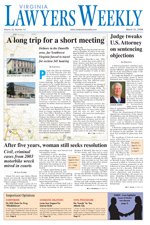Here’s a nugget for the employment bar from Banks v. Mario Industries of Virginia Inc., decided today by the Supreme Court: Disclaimers about no expectation of privacy in the use of company computers will be upheld, and attorney-client privilege is no help to an ex-employee on the point.
The Banks case was a business-tort claim against an employee who wanted to leave his employer and start a competing business.
He tapped out a memorandum outlining his plan, ideas and ambitions for his new business. He used his employer’s computer, printed it out on the office printer and erased the file from the hard drive. He sent the plan to his lawyer for review.
The guy left and followed through on the plan; the inevitable lawsuit followed. A computer forensics expert found the wiped file on the hard drive, and the info was used at trial, which the employer won more than $1.6 million in damages, including more than $50K in punitives.
On appeal, the guy claimed error on admission of the memo, based on attorney-client privilege. The company let employees use office computers for personal business, but their handbook stated that there was no expectation of privacy in that use.
The court moved this point of evidence into the computer age. In a 1988 case, the court said that when parties allow their conversations to be overheard, any privilege is waived. Citing that decision, the court found it was OK to let the memo come in.
Subscribe to:
Post Comments (Atom)

No comments:
Post a Comment